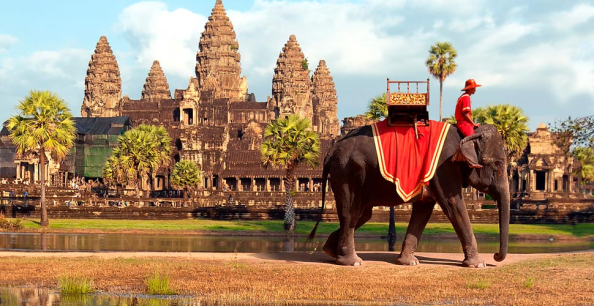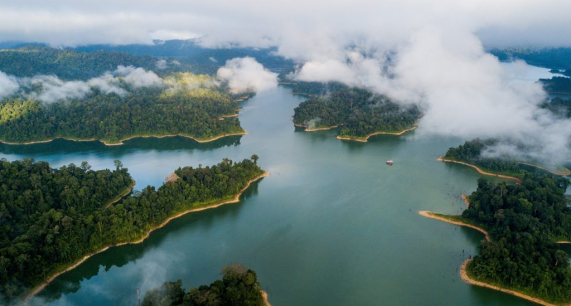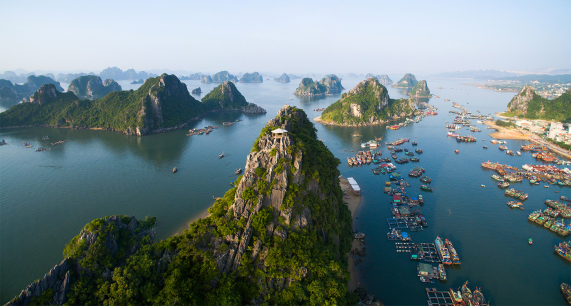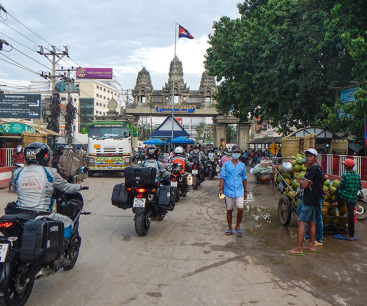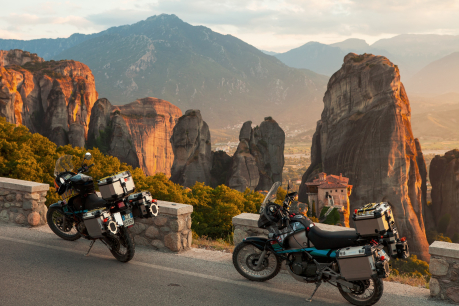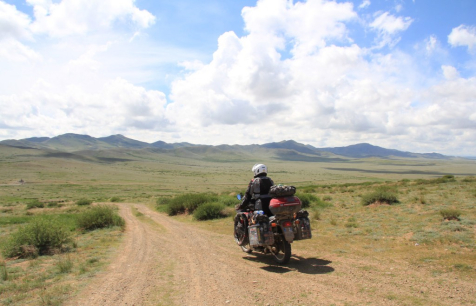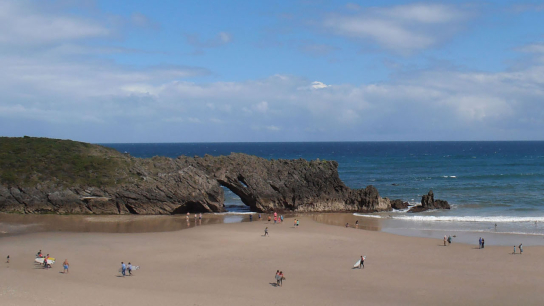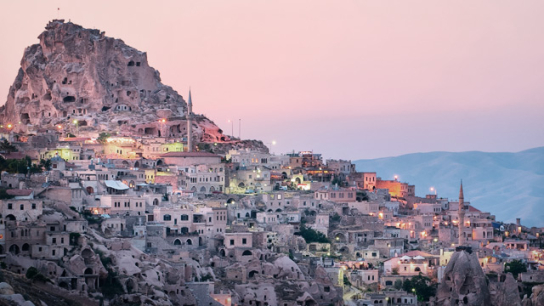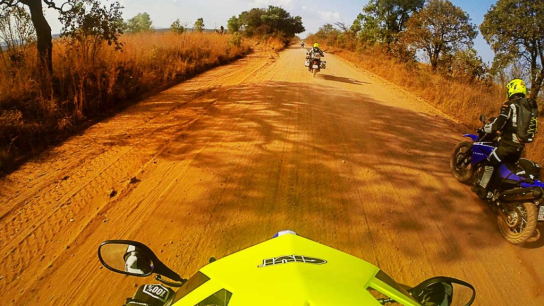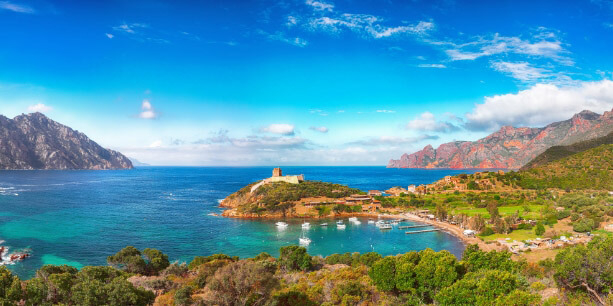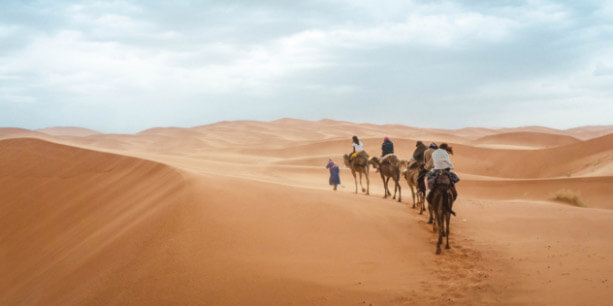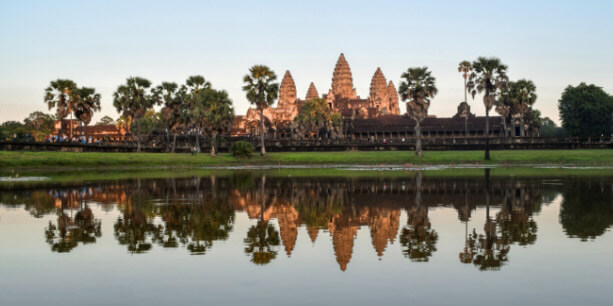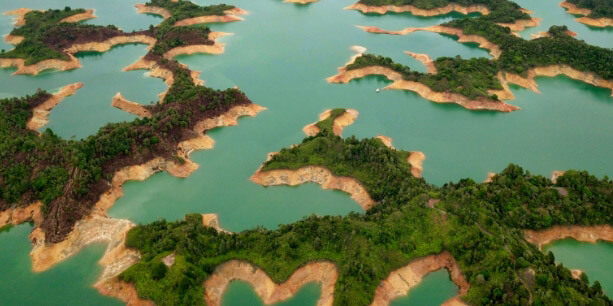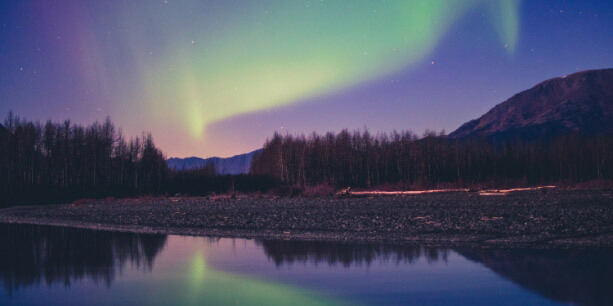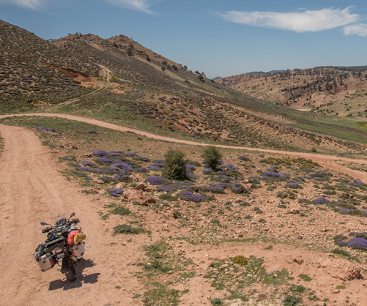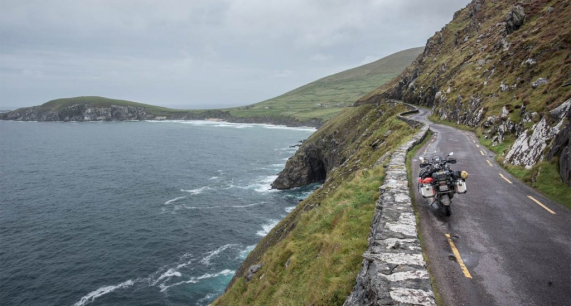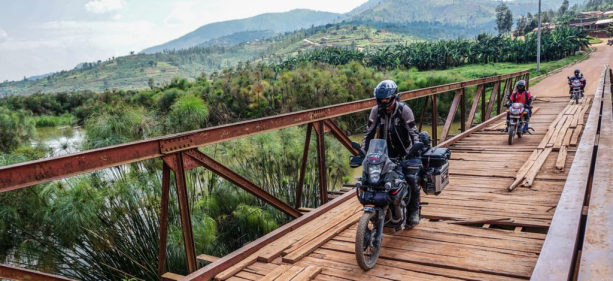Chile - practical info
Alone or with others?
To go on a trip in Chile, just like in all those Countries where nature and unspoilt landscapes make up the most part of the territory, it is advisable to have the support of a local guide.
Motorbike equipment
Fundamental are capacious rigid cases, but also internal bags to better store clothes and photo/video equipment. Extra petrol tanks are advised (especially for off-road trips) plus other technical accessories such as engine guards and oil carter protectors [sump guards? ho trovato entrambe le diciture...] to avoid or reduce to a minimum unpleasant surprises while riding off-road. The Northern desert and the coast are often windy so a good windscreen increases protection and reduces fatigue. If you hire a bike locally make sure you verify the vehicle’s set-up and arrange to possibly add some soft bags to fix on the existing equipment.
Last piece of advice to travel in complete safety... First aid kit, tyre-repair kit, high-visibility vest and correct size helmet (always consider the possibility of taking your own). By the way, in Chile helmets are obligatory and you drive on the right.
Personal and motorcycle documents
For Italians, a passport valid for at least six months and international driver’s licence (it is also possible to drive with an Italian driver’s licence).
If the trip is under 90 days and for the purposes of tourism, there is no need for a visa.
These rules may change according to the Country of origin.
It is fundamental to have insurance to cover medical/hospital expenses (these are high and you pay also for A&E costs) and possible early return and that also covers stolen luggage.
If you import or arrive from a confining Country with your own vehicle, it is necessary to insure it in Chile for the length of the trip (foreign insurance is not well accepted). For temporary import the ATA Carnet for Temporary Admission of Goods (CPD) is advisable; for Italians the reference website is the ACI website.These rules may change according to the Country of origin.
In case of doubts consult the consulate/embassy of Chile in your country or your embassy in Chile.
The official tourist portal for Chile is available online in English, German, Spanish and Portuguese: http://www.chile.travel/ where it is also possible to download detailed maps.
Health considerations
Chile does not require special vaccinations but it is best to check before leaving. Italian bike-riders can check on the Farnesina website (Viaggiare Sicuri area) or by contacting the local embassy once there (Italian Embassy - Santiago - emergency number +56 97 80 98 998).
Do not forget to talk with your doctor, who knows your state of health better than anyone (for some people a vaccination against Hepatitis A maybe useful, seeing the high number of registered cases). Do not underestimate the altitude factor: most of the areas visited by riders are up high (often above 3000m and even 4000 - not advisable for some people with anaemia).
Outbreaks of meningococcal disease have been recorded in some parts of the country. The presence of rats carrying the Hantavirus, which can infect humans, is widespread in the central and southern regions. The virus has a 50% mortality rate.
Information on the virus and the precautions to be taken against it can be found on the CONAF (National Forest Corporation) website: https://www.conaf.cl/
The Aedes Aegypti mosquito, which can be infected with and carry the Zika virus, is not present in continental Chile.
The only area where this type of mosquito is found is on Easter Island.
In March 2023, a case of human infection caused by the A(H5) bird flu virus was confirmed in the region of Antofagasta. The WHO recommends avoiding contact with animals which are sick or dead through unknown causes.
The COVID-19 situation
It is no longer necessary to have a vaccine certificate or negative PCR test to enter the country. For further information and updates, see the website
https://saludresponde.minsal.cl/medidas-fronteras-nacionales/
As of 1 October 2022, Chile has passed to “open” status. The “Pase de Movilidad” is no longer necessary to access public sites. Masks are obligatory only in healthcare facilities.
As the regulations are continuously revised, we recommend checking which areas of the country are subject to restrictions directly on the website https://www.gob.cl/pasoapaso/
Safety
In 2019, a series of demonstrations and protests broke out into episodes of violence as part of the so-called "Estallido social". We recommend taking extreme caution and avoiding the sites of large gatherings. In Santiago in particular, it is best to avoid the city centre and the Alameda/Parque Bustamante/Baquedano/Plaza Italia areas, especially during the evening. In the rest of the country, it is advisable to avoid the outskirts of all major cities.
Cases of crimes such as theft and assault are on the rise: pay particular attention in the zones around the Comodoro Arturo Merino Benitez airport in Santiago.
In general, the advice is never to let your guard down, as distraction is often used as a technique to facilitate robbery.
Due to the presence of minefields, though they are well signposted, travelling north into the regions of the borders with Bolivia and Peru is not advised; nor is travel into the mountainous areas along the border with Argentina, unless accompanied by a local guide.
Minefields can also be found in the far south of the country, in the Bahía Azul region of Isla Grande de la Tierra del Fuego, as well as even further south on the following islands: Isla Nueva, Isla Picton, Isla Deceit, Isla Freycinet and Isla Hornos.
Sudden, unpredictable changes in the weather are frequent and can make even day trips difficult. Trails must be joined at the points marked by CONAF. This rule must be followed for your own safety, so that search and rescue operations can be mounted if you fail to return.
Language, currency and other tips
Language: Spanish
Religions: Catholic, Evangelical
Currency: Chilean peso (CLP). However, American dollars are accepted everywhere and easy to exchange. It is possible to withdraw money from cash machines in the main cities.
Time zone: between September and April, the local daylight saving time is in use. During this period, the time difference with central Europe is -4h; this becomes -6h during daylight saving time in Europe and -5h during the rest of the year.
Prefix for Italy: + 39 (if you are making overseas calls from a Chilean network, it is necessary to add a “Carrier” number before the country prefix).
prefix from abroad: + 56
Mains voltage: 220 volts. Wi-Fi service available in major cities.
Italian embassy in Santiago: Calle Clemente Fabres, 1050 - Providencia
Santiago, Chile - Tel: +56 2 24 70 8400 - Emergency mobile phone number: +56 97 80 98 998 -
email address: info.santiago@esteri.it
Automòvil Club de Chile (Acchi) - Antonio Varas n° 671 Providencia Santiago - tel: 0056 22 49 57 716 - email address: acchinfo@automovilclub.cl - website: https://www.automovilclub.cl/
Road Safety phone line: tel. 600 6000 600 - tel. 02 43 11 313 (with a mobile)
In Italy
For the addresses and contact details of this nation’s accredited Embassies and Consulates in Italy, check the website of the Italian Ministry of Foreign Affairs
Fuel
In Chile there are no particular problems linked to finding fuel, it is relatively easy to find petrol stations, but it is always best to have some extra petrol, especially if travelling off-road.
Currently (5 June 2023), the cost of a litre of petrol in Chile is €1.477/US$1.582.
When to travel
There is no period better than others to visit Chile. A lot depends on the chosen itinerary, as Chile has such an extended geography. Summer is from December to March, while (southern) winter is from June to August.
In any case temperatures, especially on the Andes and in the northern desert, are vary variable between day and night, so it is always advisable to travel with technical clothes that guarantee skin breathing but also protection against cold. in case of excursions in the most isolated northern (such as the Atacama desert) or southern regions (Patagonia), always leave indications of where you intend to go.
Motorcycle rental
Motopatagonia
Guided tours in Chile and Patagonia and motorcycle rental with headquarters in Puerto Varas.
Telephone & WhatsApp
+56 94 26 72 861 ENG
+56 94 26 72 872 ESP
Email address: info@motopatagonia.com
Horizonte tours
Guided motorcycle tours in Chile.
Telephone: for all types of assistance:
+54 9387 452 5864
+34 661 084 410
+49 (0)178 695 8636
Email address: info@horizonte-tours.com
Central headquarters:
Gauchos de Güemes, s/n
4401 Vaqueros, Salta, Argentina
Website: https://horizonte-tours.com
Contents updated as of May 2023.
Your indications are always useful to update the PRACTICAL INFO



